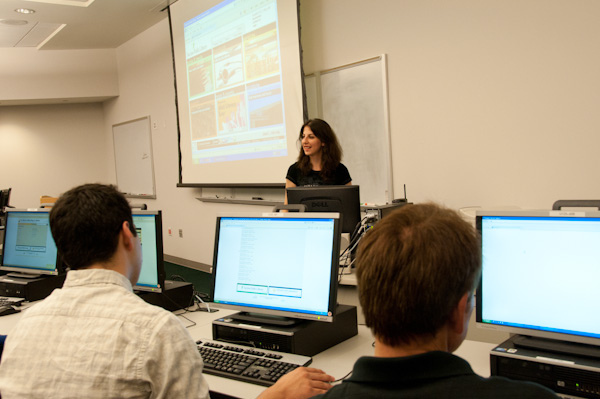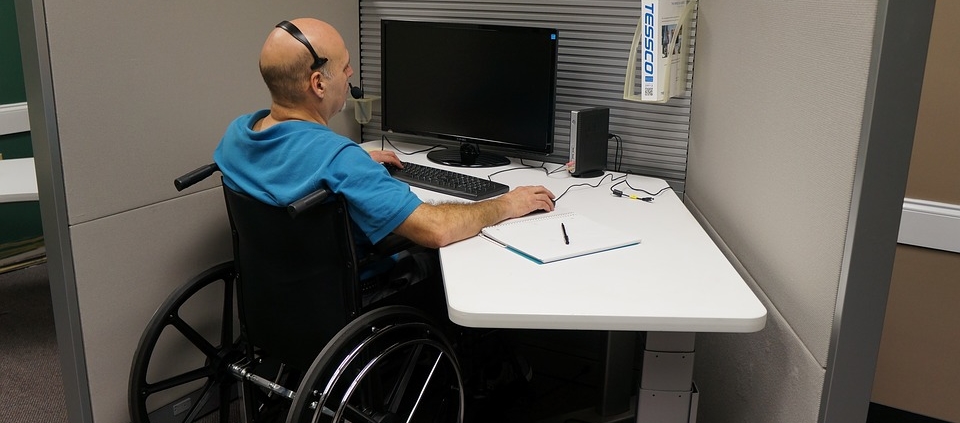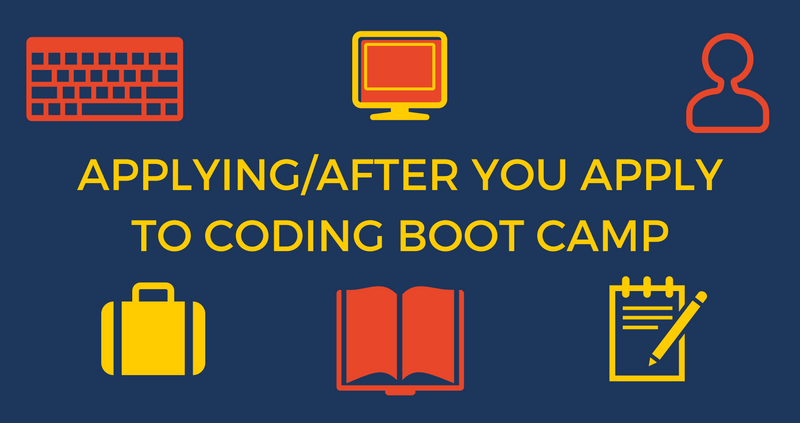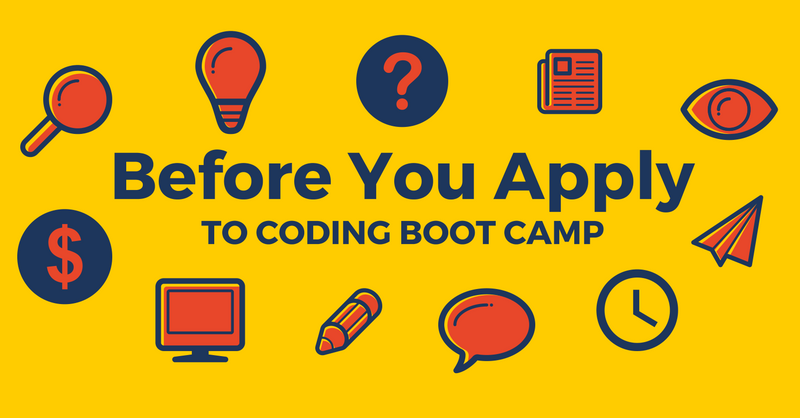Javier Revuelta: How a challenging experience became rewarding, and led to a dream job
Javier joined our very first cohort back in January 2016 and graduated in May 2016! We asked him to share a few answers with us over email about his experience with Code Platoon.
Javier Revuelta
Former title: Korean Cryptologic Linguist, United States Air Force
Current title: Ruby Developer Intern at PowerReviews
How did it feel when you transitioned out of the military? What would you say to others who are going through/will go through the same transition?
Transitioning out of the military was an interesting experience, because despite my eagerness to start a new phase, there was a long period of adjustment back to life beyond the uniform. I went straight back to school to finish a Bachelor’s degree and, while certainly useful, at the end of the process I felt like I had just gone through the motions, somewhat. Get out, go to school, get a degree, go find a job—that sort of thing. Code platoon was frankly the turning point that made me feel like I was on a real career path, rather than simply having a decent job.
To anyone who is transitioning out of the military, I would simply suggest giving yourself the time to really consider where you want to be in a few years. Ultimately, we are all looking to be happy and fulfilled in our lives, but that can take many forms and half the battle is being honest with yourself about what that means to YOU. Whether your choice places you near or far from the skillset you developed in the military isn’t all that important. Don’t be afraid of going way out of your element.
What do you do on a typical day now in your civilian career? Is it different from your time in the military?
I am currently a software engineering intern at PowerReviews. I support two Rails applications, and have had the opportunity to collaborate developing new features and seeing the entire process of bringing a new application to life.
A typical day starts around 8:00 or 9:00 am with arriving to work and checking for pull requests that have been submitted by the team. I familiarize myself with the work that went on the previous day and ask any questions that might come up while I do code review before we merge the newest batch of changes. I will then take a few minutes to prioritize the day in terms of outstanding tickets I might have, and will try to do some coding before our standup meeting at 10:30.
Once standup time arrives, the team gathers and explains the work each person has done since the previous day. We are encouraged to bring up anything that could be blocking our progress so we can address that quickly. I will generally give some idea of where I am with projected completion times for outstanding tickets, and mention whether any of my work is relevant or could impact any of the work that the others are doing. Standup meetings tend to be fairly short, so I am usually back at my desk within 15 minutes.
Once standup is complete, I can get a good coding session in before lunch. Work tends to have a wide range of flavors, but taking today as an example, I spent the morning writing some tests for Active Record models. Lunch was going for a quick run to clear my mind, and then it was back to tackling a few bugs in the code for one of our apps, as well as re-visiting an API I had written to expand its features, since requirements for it had changed.
The work that I did in the military involved foreign languages, so there are certainly some parallels to be drawn. The process of learning vocabulary and phrasing in Korean ties closely with working out the syntax of- and well as writing idiomatic Ruby, for example.
Why did you join the military? What does the military instill in you?
I was unsure about what I wanted to do with my life, so I walked into a recruiter’s office almost as an afterthought. As soon as I got the option to become a cryptologic linguist, I knew that I would be in for a very special experience and the rest was history. The military will teach you many things, but the most important ones are leadership and teamwork, which go hand-in-hand. Nobody is above the team, nobody is dead weight, and nobody gets left behind—lessons are taught quickly and effectively if you struggle with any of those concepts. What comes from that is a strong sense of self and core values, along with a level of camaraderie with your peers that will, in all likelihood, never be matched in your civilian life.
Why did you decide to join Code Platoon?
Code Platoon opened a door that I had long ago considered to be closed. Going back to the reasons I joined the military, one of the things that the recruiter asked me after I had completed all of my assessments was whether I had an interest in languages or programming. Back then I said languages, but I spent the next ten years wondering what would have happened if I had answered differently. Code Platoon gave me a chance to answer that question again and choose a new path.
One of the most important things that led to my decision to join Code Platoon was an early conversation I had with Rod while I was finishing up my application. It was clear to me that the best intentions were in place with this program: non-profit, veteran focused, etc., but I knew that if the right person wasn’t at the helm this would be short-lived. Rod instilled an immense amount of confidence in me, and his absolute frankness about the program, the challenges ahead, and his plans to really build something great made this an easy decision.
Take all of that and add a generous tuition-assistance program coupled with companies willing to grant internship slots to new graduates, and you have a package that is unmatched by any other boot camp.
What was your favorite and/or most memorable part of it?
I will always remember the camaraderie and dedication that everyone showed day in and day out. Most of us have been out of the military for a while and were complete strangers when we first started the program, but I know that I have lifelong friendships here and that I could trust these guys with my life.
Memorable? Many things stand out: hackathon night pairing with the guys at Enova, the surprise of getting our graduation coins after presenting our final projects, walks around the block to try to clear our minds and discuss a given project, or even the cheesy ‘Welcome Back’ CSS animations for the e-greeting card we built for Rod when he got back from a trip. I’ll never forget having our instructor take on multiple accents/personas to play ‘client’ or ‘consultant extraordinaire’ when we were tackling our projects. It’s the small things that made this whole experience amazing.
How did you feel at the beginning of CP?
I was excited to take on this new challenge, proud of myself for making the leap of transitioning out of one career to pursue my real passion, and also slightly nervous about my ability to get through it all and succeed. Would I be able to handle the curriculum? Could I really build a new career as a software developer?
I would eventually learn that the answer to both was a resounding yes, but those first days definitely put us all to the test.
What did you think of Code Platoon overall?
Code platoon was an interesting experience; it was certainly rewarding but immensely challenging at the same time. We were provided an incredibly capable instructor (rewarding!), but the teaching style – in having to compress so much information into such a small timeframe – was not for everyone (challenging!). I don’t think I could have achieved what I did anywhere else, and in that I give full credit to Rod, Josh, and Brent for doing an outstanding job as we navigated this new process together.
Ultimately, I think what brought Code Platoon to life was the camaraderie. For all the happy years all of us have spent as civilians, there is something to be said for being in a group of people who have also served in the military. There is no leaving anyone behind, or losing sight of the goal – and that is something that was proven time and time again as we struggled, came together, and overcame many of the challenges that we faced in those sixteen weeks.
What advice would you give to people who want to get the most out of Code Platoon?
The most important piece to getting the most out of Code Platoon actually needs to occur before ever stepping into the classroom: gaining a full understanding of what programs like these demand of you and arriving at the right mindset. I can’t say that any of us can fully appreciate that until we are in the middle of it, but reflecting on and accepting the demands and stresses that this would place on my life certainly helped me when the pressure was on and everyone was starting to crack a bit. This will be difficult. This will demand more of you than any academic endeavor you’ve engaged in previously, and it will beat you into the ground if you’re not in 100%.
How has joining Code Platoon affected your life?
It changed my perspective on learning and completely redefined what I now consider difficult or challenging. From a confidence standpoint, I am fairly certain that – given enough time – I could learn just about anything, programming-related or not.
I am currently finishing the second month of a six-month internship, and that is thanks to Rod’s efforts to get enough sponsor companies lined up for us. So far, the support here has been outstanding, and I find myself at a company where people really seem to enjoy their work. You wouldn’t believe what a difference that makes every morning when I walk in!
What do you want out of your career today?
I want the fulfillment of knowing that I am tackling and solving difficult and very different problems while working with a great group of people. I know that my happiness is tied intrinsically to satisfying a high level of intellectual curiosity—so far the work that I am doing has delivered in spades.


























